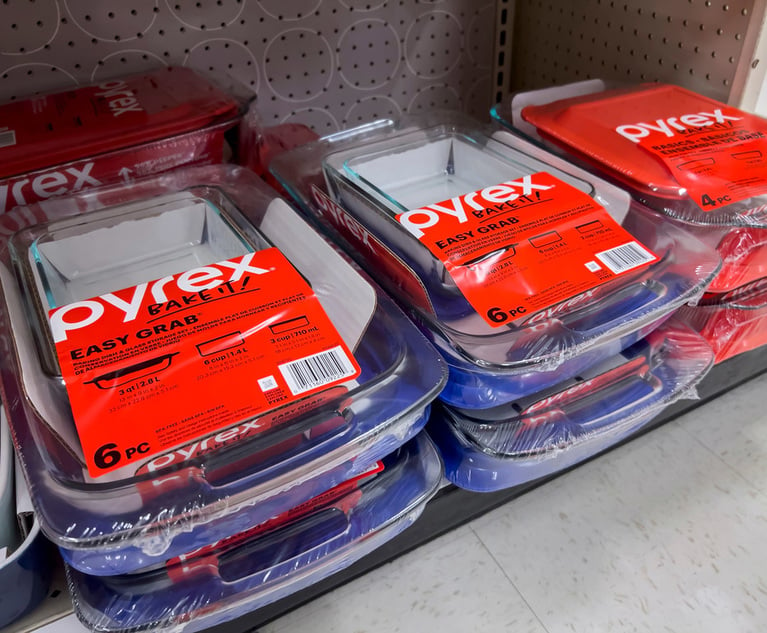 Photo: Shutterstock
Photo: ShutterstockBayada Ordered to Provide Contacts for Potential Pa. Wage-and-Hour Class Claimants
The appeals court quashed Bayada's appeal from a Philadelphia trial judge's Sept. 26, 2018, order, which gave the company 20 days to hand over to the plaintiffs contact information for all current and former employees who could potentially be class members in Pennsylvania.
June 13, 2019 at 12:06 PM
5 minute read
In what appears to be a case of first impression, the Pennsylvania Superior Court rejected Bayada Home Health Care's bid to withhold contact information for all potential Pennsylvania class members in a wage-and-hour lawsuit—and suggested possible sanctions against the health care company for improperly delaying the litigation.
The appeals court in Reed v. Bayada Home Health Care quashed Bayada's appeal from a Philadelphia trial judge's Sept. 26, 2018, order, which gave the company 20 days to hand over to the plaintiffs contact information for all current and former employees who could potentially be class members in Pennsylvania. The lead plaintiffs allege violation of Pennsylvania wage-and-hour statutes on behalf of themselves and similarly situated nurses.
Senior Judge James Gardner Colins, writing for a unanimous three-judge panel in an unpublished June 7 memorandum, said Bayada failed the three-prong test for appealing from a collateral order.
“To summarize, appellant failed to assert a constitutional or statutory privacy interest or a specific privilege,” Colins said. ”Its generalized concerns about privacy and privilege are inadequate to satisfy the requirement of Pa.R.A.P. 313(b) that 'the right involved is too important to be denied review[.]' Consequently, appellant has failed to satisfy the second prong of the test for the appealability of collateral orders as it relates to the September 26 order. Since one prong fails, the entire test fails, and collateral appellate review cannot be allowed.”
Colins was joined by Judges Susan Peikes Gantman and John Bender.
Bayada initially responded to the plaintiffs' discovery request by agreeing to produce the wage-and-hour data from one of its 116 Pennsylvania offices, according to Colins' opinion. The plaintiffs countered by offering to limit their discovery request to wage-and-hour data from 10 to 20 of Bayada's Pennsylvania offices, but Bayada rejected that offer.
After the plaintiffs filed two motions to compel discovery, they wrote a letter to the trial court saying they would limit their requests to the names, addresses, emails and phone numbers for the potential Pennsylvania class members. On Sept. 26, 2018, the court ordered Bayada to produce that information within 20 days. Bayada was not, however, ordered to produce personnel files or wage-and-hour data. Bayada appealed, arguing to the Superior Court that “the information sought by [plaintiffs] is private information that is both confidential and proprietary in nature, and implicates informational privacy rights and privacy concerns.”
But Colins noted that while Bayada made several references to ”privileged material” and “privileged and confidential information,” it never asserted a specific privilege.
“We find no case law directly on point, involving a challenge to a discovery order for the personal information of third parties, and appellant provides us with none,” Colins said. “Nonetheless, the Supreme Court of Pennsylvania has held, that 'the mere assertion of a privacy interest related to discovery' does not 'implicate as-of-right interlocutory appellate review.'”
Colins said the Supreme Court has recognized the need to allow interlocutory appeals where the discovery request at issue involves constitutional or statutory privacy interests, but noted that Bayada did not argue that either of those applied.
Colins also said Bayada misconstrued the Pennsylvania Supreme Court's ruling in Pennsylvania State Education Association v. Commonwealth, Department of Community and Economic Development as standing for the proposition that ”'ordering the disclosure of names, addresses, phone numbers and email addresses of non-parties violates their right to informational privacy.'”
“The current appeal concerns employees of a private corporation, not individuals employed by the commonwealth or other public entity,” Colins said. “Furthermore, the stipulated confidentiality agreement in the current case precludes the contact information of class members from being shared with the general public or accessed by a member of the public at any time, unlike the statutorily-sanctioned disclosure at issue in PSEA. In conclusion, PSEA does not permit appellant's assertions of a privacy interest to satisfy the 'importance' prong of the collateral appeal doctrine.”
The Superior Court panel remanded the case to the trial court to execute the order requiring Bayada to hand over the requested information to the plaintiffs and, in the closing line of its opinion, said that “[the] court shall order any additional relief or clarification that it deems fit.” In a footnote to that last sentence, Colins said, “We suggest that appellant only filed this appeal from an unappealable order for purposes of delay; ergo, the trial court may fashion any remedy or sanction that it deems necessary, including ordering appellant to pay appellees' costs and counsel fees for this appeal pursuant to 42 Pa.C.S. Section 2503(7).”
Counsel for Bayada, Thomas Collins of Buchanan Ingersoll & Rooney in Harrisburg, could not be reached for comment.
Counsel for the plaintiffs, Michael Shaffer of Shaffer & Gaier in Philadelphia, said the parties have been arguing over discovery for a long time.
“We're looking forward to getting this case moving forward on the merits,” Shaffer said. “We're very confident in our position and we want to get the case moving forward.”
(Copies of the 15-page opinion in Reed v. Bayada Home Health Care, PICS No. 19-0710, are available at http://at.law.com/PICS.)
This content has been archived. It is available through our partners, LexisNexis® and Bloomberg Law.
To view this content, please continue to their sites.
Not a Lexis Subscriber?
Subscribe Now
Not a Bloomberg Law Subscriber?
Subscribe Now
NOT FOR REPRINT
© 2024 ALM Global, LLC, All Rights Reserved. Request academic re-use from www.copyright.com. All other uses, submit a request to [email protected]. For more information visit Asset & Logo Licensing.
You Might Like
View All
Immunity for Mental Health Care and Coverage for CBD: What's on the Pa. High Court's November Calendar
5 minute read

Trending Stories
- 1US Magistrate Judge Embry Kidd Confirmed to 11th Circuit
- 2Shaq Signs $11 Million Settlement to Resolve Astrals Investor Claims
- 3McCormick Consolidates Two Tesla Chancery Cases
- 4Amazon, SpaceX Press Constitutional Challenges to NLRB at 5th Circuit
- 5Schools Win Again: Social Media Fails to Strike Public Nuisance Claims
Who Got The Work
Michael G. Bongiorno, Andrew Scott Dulberg and Elizabeth E. Driscoll from Wilmer Cutler Pickering Hale and Dorr have stepped in to represent Symbotic Inc., an A.I.-enabled technology platform that focuses on increasing supply chain efficiency, and other defendants in a pending shareholder derivative lawsuit. The case, filed Oct. 2 in Massachusetts District Court by the Brown Law Firm on behalf of Stephen Austen, accuses certain officers and directors of misleading investors in regard to Symbotic's potential for margin growth by failing to disclose that the company was not equipped to timely deploy its systems or manage expenses through project delays. The case, assigned to U.S. District Judge Nathaniel M. Gorton, is 1:24-cv-12522, Austen v. Cohen et al.
Who Got The Work
Edmund Polubinski and Marie Killmond of Davis Polk & Wardwell have entered appearances for data platform software development company MongoDB and other defendants in a pending shareholder derivative lawsuit. The action, filed Oct. 7 in New York Southern District Court by the Brown Law Firm, accuses the company's directors and/or officers of falsely expressing confidence in the company’s restructuring of its sales incentive plan and downplaying the severity of decreases in its upfront commitments. The case is 1:24-cv-07594, Roy v. Ittycheria et al.
Who Got The Work
Amy O. Bruchs and Kurt F. Ellison of Michael Best & Friedrich have entered appearances for Epic Systems Corp. in a pending employment discrimination lawsuit. The suit was filed Sept. 7 in Wisconsin Western District Court by Levine Eisberner LLC and Siri & Glimstad on behalf of a project manager who claims that he was wrongfully terminated after applying for a religious exemption to the defendant's COVID-19 vaccine mandate. The case, assigned to U.S. Magistrate Judge Anita Marie Boor, is 3:24-cv-00630, Secker, Nathan v. Epic Systems Corporation.
Who Got The Work
David X. Sullivan, Thomas J. Finn and Gregory A. Hall from McCarter & English have entered appearances for Sunrun Installation Services in a pending civil rights lawsuit. The complaint was filed Sept. 4 in Connecticut District Court by attorney Robert M. Berke on behalf of former employee George Edward Steins, who was arrested and charged with employing an unregistered home improvement salesperson. The complaint alleges that had Sunrun informed the Connecticut Department of Consumer Protection that the plaintiff's employment had ended in 2017 and that he no longer held Sunrun's home improvement contractor license, he would not have been hit with charges, which were dismissed in May 2024. The case, assigned to U.S. District Judge Jeffrey A. Meyer, is 3:24-cv-01423, Steins v. Sunrun, Inc. et al.
Who Got The Work
Greenberg Traurig shareholder Joshua L. Raskin has entered an appearance for boohoo.com UK Ltd. in a pending patent infringement lawsuit. The suit, filed Sept. 3 in Texas Eastern District Court by Rozier Hardt McDonough on behalf of Alto Dynamics, asserts five patents related to an online shopping platform. The case, assigned to U.S. District Judge Rodney Gilstrap, is 2:24-cv-00719, Alto Dynamics, LLC v. boohoo.com UK Limited.
Featured Firms
Law Offices of Gary Martin Hays & Associates, P.C.
(470) 294-1674
Law Offices of Mark E. Salomone
(857) 444-6468
Smith & Hassler
(713) 739-1250






